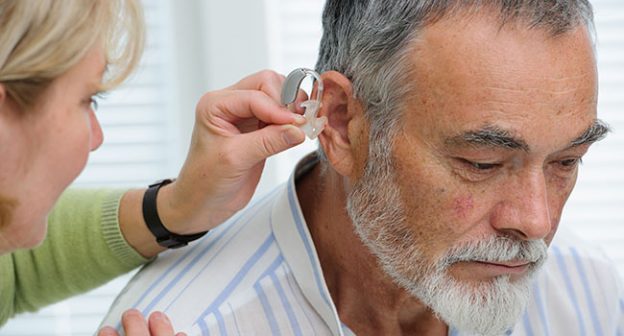Most of us know someone who has hearing loss. Some of you may be experiencing hearing loss yourself. In fact, more than 48 million people in the United States currently experience some degree of hearing loss. In Arizona, of the more than 1.1 million people who are deaf or hard of hearing, approximately 90% are older adults.
LEARN MORE: How face mask use is causing many to discover hearing impairments
According to the Better Hearing Institute (BHI) one of the primary causes of hearing loss is aging. Oftentimes people dismiss signs of hearing loss as “no big deal.” In reality, hearing loss is a very big deal. Hearing loss can affect anyone at any time and can impact all the areas of your life, including your relationships, your health and your safety.
Most people don’t realize that hearing loss can be linked to depression and memory loss, an early indicator of dementia.
According to a John Hopkins study, the prevalence of dementia is projected to double every 20 years such that by 2050 more than 100 million people or nearly 1 in 85 persons will be affected worldwide. The impact of dementia not only impacts the affected individuals but can cause a great burden on their families and on society in general. An individual with hearing loss is two-to-five times more likely to develop dementia earlier than people without hearing loss. Studies have suggested that while your brain works to overcompensate for your hearing loss, there is a greater possibility of it being impacted by conditions like dementia.
How can I prevent dementia by protecting my hearing?
While the likelihood of developing dementia exists, there are ways to prevent hearing loss:
- Protect your ears. Keep music or TV volumes low, especially when you are wearing headphones. If you have headphones on and someone else can hear your music, the volume is too high.
- Don’t ignore your hearing loss. If you are experiencing any symptoms of hearing loss, see a hearing healthcare professional right away to start combating the symptoms.
- Tackle the hearing loss head on. Don’t assume hearing loss will go away on its own. It won’t. The sooner you get assistance with your hearing loss, the more likely you are to possibly prevent early dementia.
- Utilize technology. If you have a hearing aid, wear it as much as possible. You can also consider other hearing interventions including cochlear implants, assistive listening devices, amplified telephones, or captioning. Utilizing hearing technology lessens the stress on the brain and helps you focus on other information.
- Access to resources. If you start to experience hearing loss, it is important to utilize the resources available to you so that your hearing loss doesn’t increase; leaving you vulnerable to other issues like dementia that can affect your brain.
Access to Resources
As you begin to age, access to valuable resources is critically important for all of us. However, an Arizona Commission for the Deaf and the Hard of Hearing (ACDHH) community survey conducted in December 2021, found that older Deaf and Hard of Hearing adults in the state report that they are concerned with where to find these resources. Survey respondents indicated that they need information on general health and wellness as well as information on memory loss and dementia, pharmacy benefits and access to mental health services. Other important resources mentioned included assistance with maintaining their independence and living on their own, access to caregivers who were fluent in American Sign Language (ASL), as well as access to attorneys and estate planners can assist with living wills and trust laws.
As such, ACDHH is launching its Age of Access initiative designed to be a one-stop destination for resources, information and programming for Arizona’s older adults who are deaf or experiencing hearing loss. An online survey is in the field right now to gain additional information regarding the needs of the community and how best to provide access to these resources. If you are an older adult in Arizona and are deaf or hard of hearing, we encourage you take the survey: https://bit.ly/acdhhsenior
Author: Sherri Collins is the executive director for the Arizona Commission for the Deaf and the Hard of Hearing. For more information on the Arizona Commission for the Deaf and the Hard of Hearing visit www.acdhh.org.




